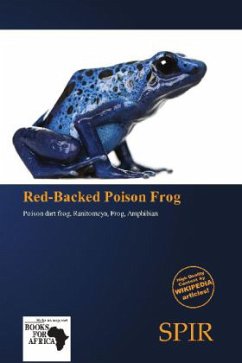
ECOLOGY OF CRITICALLY ENDANGERED ORIENTAL WHITE-BACKED VULTURE
Catastrophic decline of GYPS BENGALENSIS
Versandkostenfrei!
Versandfertig in 6-10 Tagen
32,99 €
inkl. MwSt.

PAYBACK Punkte
16 °P sammeln!
This study was conducted to investigate the total population of vultures, population decline, head drooping behaviour, mortality rate and pattern of mortality in two vulture colonies (Toawala and Dholewala) within Punjab Province, Pakistan between December 2000 to August 2002 and at both sites, substantial decline in population of Gyps bengalensis was noted. Signs of visceral gout while omental fat reserves were found intact indicating the death of vultures was sudden and found in clusters, that leads more towards relay intoxication through food resources.As we know Vultures are keystone speci...
This study was conducted to investigate the total population of vultures, population decline, head drooping behaviour, mortality rate and pattern of mortality in two vulture colonies (Toawala and Dholewala) within Punjab Province, Pakistan between December 2000 to August 2002 and at both sites, substantial decline in population of Gyps bengalensis was noted. Signs of visceral gout while omental fat reserves were found intact indicating the death of vultures was sudden and found in clusters, that leads more towards relay intoxication through food resources.As we know Vultures are keystone species and their declines are having adverse effects upon other wildlife, domestic animals and humans. In particular, there is a risk of increase in diseases that threaten human life and welfare.The extinction of vultures may have far reaching economic, ecological and public health implications. Vultures may play a role in the control of important livestock diseases (e.g., anthrax, tuberculosis,brucellosis, foot and mouth disease and contagious pleuropneumonia etc) by rapid disposal of infected animals and inactivation of pathogens. So this book will help to know more about Gyps bengalensis.












